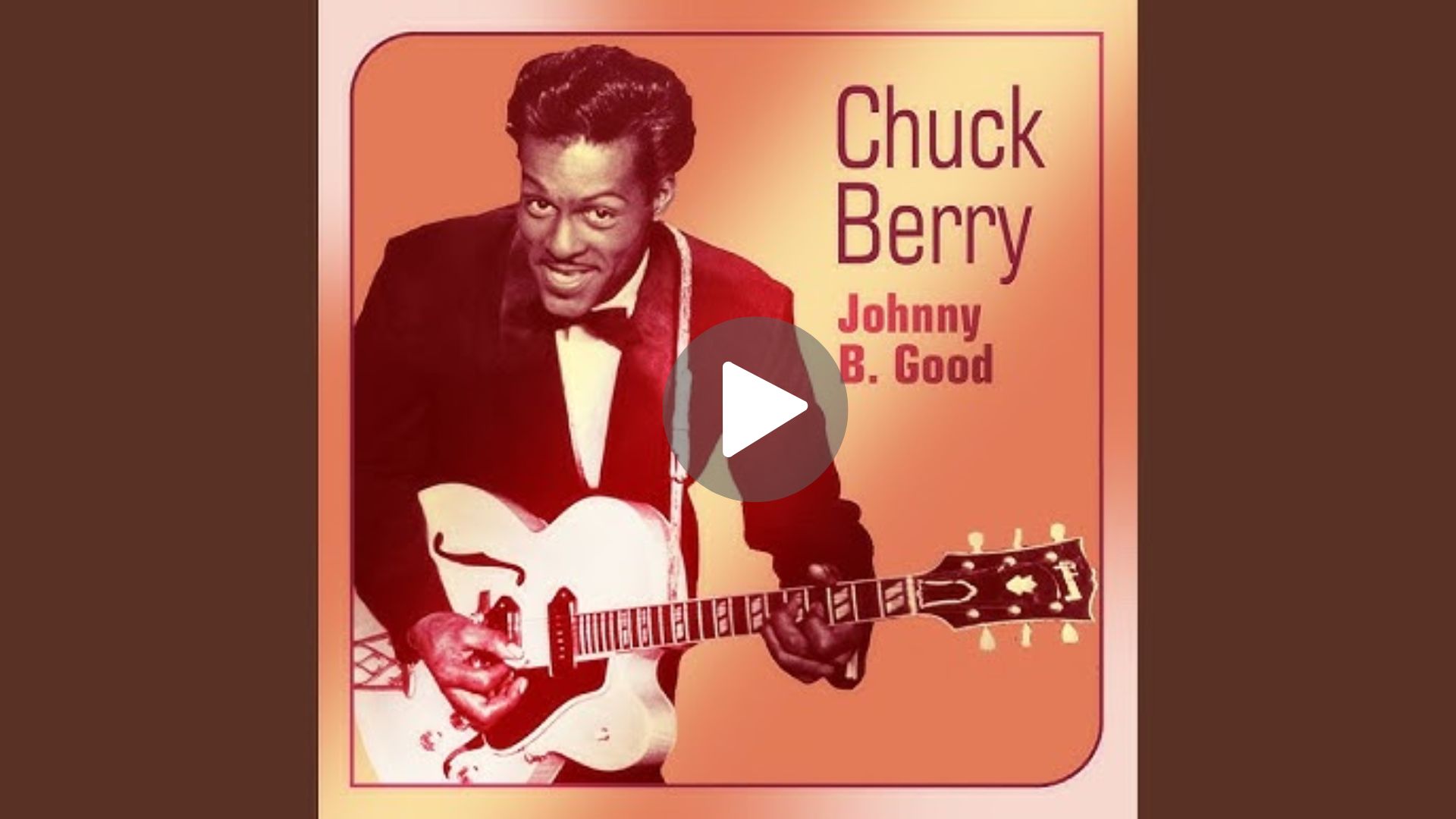About the song
“Bye Bye Johnny” by Chuck Berry is a spirited and bittersweet sequel to one of rock and roll’s most iconic songs, “Johnny B. Goode.” Released in 1960, this track takes the beloved story of Johnny, a young and talented musician with dreams of stardom, and adds an emotional twist, delving deeper into his journey and the sacrifices that accompany ambition. As part of Berry’s extensive catalog, “Bye Bye Johnny” encapsulates the essence of early rock and roll while offering a poignant narrative that resonates with listeners even decades after its release.
Belonging to the golden era of Chuck Berry’s career, “Bye Bye Johnny” is a follow-up to his earlier hit, portraying Johnny’s departure from his humble beginnings as he embarks on his quest to achieve fame. The song continues the narrative of Johnny B. Goode, weaving a tale of hope, struggle, and the emotional weight of leaving home. Johnny’s mother, who was a pivotal figure in the original song, returns here with a prayer for his success, showcasing the love and pride she feels for her son while also emphasizing the emotional toll of his absence.
The lyrics of the song are straightforward yet deeply evocative. Lines like, “She drew out all her money from the Southern Trust and put her little boy on the Greyhound bus,” illustrate the sacrifices made by both Johnny and his mother. These sacrifices underline universal themes of aspiration and the cost of chasing one’s dreams, themes that were as relevant in the 1960s as they are today. Berry’s ability to encapsulate such relatable emotions within a rock and roll framework is a testament to his songwriting genius.
Musically, “Bye Bye Johnny” showcases Berry’s signature style, characterized by his driving rhythm guitar, infectious melodies, and clever wordplay. The upbeat tempo and energetic delivery contrast with the more somber undertones of the lyrics, creating a dynamic interplay that keeps the listener engaged. The track epitomizes the early rock and roll sound that Berry helped pioneer, blending rhythm and blues influences with a raw, electrifying energy.
“Bye Bye Johnny” also reflects the societal context of its time, capturing the spirit of post-war America, where dreams of upward mobility and personal success were intertwined with the challenges of leaving behind one’s roots. The song’s narrative mirrors the experiences of many young Americans who ventured into the unknown in pursuit of better opportunities, making it not just a personal story but a cultural one.
In the broader scope of Chuck Berry’s legacy, “Bye Bye Johnny” serves as a reminder of his unparalleled storytelling abilities. Berry wasn’t just a guitarist or performer—he was a chronicler of dreams, aspirations, and the human condition, all delivered with a rhythm and beat that defined a generation. While it may not have reached the towering popularity of “Johnny B. Goode,” this sequel enriches the mythology of Johnny’s journey, leaving listeners with a mix of excitement for his future and empathy for the sacrifices he and his loved ones endure.
For fans of rock and roll history or anyone seeking a poignant yet uplifting musical experience, “Bye Bye Johnny” stands as a timeless piece that bridges personal and universal themes, set to the unmistakable rhythm of one of the greatest pioneers of the genre.
Video
Lyrics
She drew out all her money out of the Southern TrustAnd put her little boy aboard a Greyhound busLeaving Louisiana for the Golden WestDown came the tears from her happinessHer own little son name ‘o Johnny B. GoodeWas gonna make some motion pictures out in HollywoodBye, bye, bye, byeBye, bye, bye, byeBye bye JohnnyGood bye Johnny B. GoodeShe remembered taking money out from gathering cropAnd buying Johnny’s guitar at a broker shopAs long as he would play it by the railroad sideAnd wouldn’t get in trouble he was satisfiedBut never thought that there would come a day like thisWhen she would have to give her son a goodbye kissGoing, bye, bye, bye, byeBye, bye, bye, byeBye bye JohnnyBye bye Johnny B. GoodeShe finally got the letter she was dreaming ofJohnny wrote and told ‘er he had fell in loveAs soon as he was married he would bring her backAnd build a mansion for ’em by the railroad trackSo every time they heard the locomotive roarThey’d be a’ standin’, a’ wavin’ in the kitchen doorHowling, bye, bye, bye, byeBye, bye, bye, byeBye bye JohnnyGood bye Johnny B. Goode
